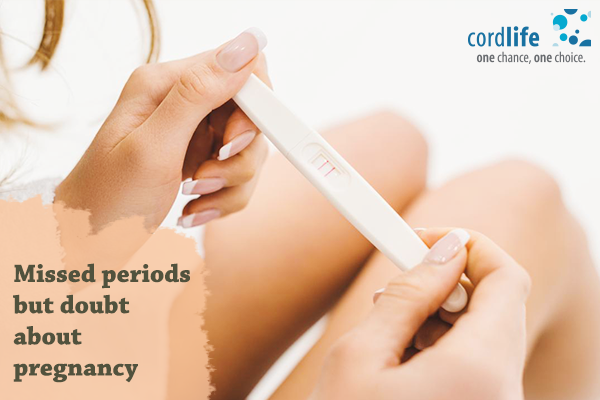Table of Contents
Missed your period but don’t know whether you are pregnant or not? Some early symptoms of pregnancy may appear around the time you missed a period – or one or two weeks later. About 60% of women have symptoms of early pregnancy by 6 weeks, and about 90% of women have symptoms by 8 weeks.
If you are newly pregnant, feeling repelled by the smell of a bologna sandwich or a cup of coffee and triggering your gag reflex for certain aromas is not uncommon. While no one knows for sure, this may be a side effect of your system’s rapidly increasing amounts of oestrogen. You may also find that you are suddenly completely repulsive to some of the foods you used to enjoy.
During pregnancy, mood swings are common, partly due to hormonal changes affecting neurotransmitters (chemical brain messengers). Everyone is responding to these changes differently. Some moms experience increased emotions, good as well as bad, while others feel more depressed or anxious.
Hormonal changes in early pregnancy may cause you to feel bloated, similar to the feeling that some women have just before their time. That’s why at the waistline your clothes might feel snugger than usual, even early when your uterus is still quite small.
Shortly after you become pregnant, hormonal changes prompt a chain of events that raise your kidney’s blood flow rate. This makes filling your bladder faster, so you need to pee more frequently. As your pregnancy progresses, frequent urination will continue–or intensify. During pregnancy, your blood volume increases dramatically, resulting in extra fluid processing and ending up in your bladder. As your growing baby exerts more pressure on your bladder, the problem gets compounded.
Feeling suddenly tired? No one knows for sure what causes tiredness during early pregnancy, but it is possible that rapidly increasing hormone progesterone levels will contribute to your sleepiness. Naturally, morning sickness and frequent urination during the night can also add to your sluggishness.
One common symptom of pregnancy is sensitive, swollen breasts due to rising hormone levels. The sorrow and swelling may feel like an exaggerated version of how your breasts are feeling before your time. After the first trimester, your discomfort should decrease considerably as your body adjusts to hormonal changes.
It seems intuitive: the last thing you want to see is any spotting or vaginal bleeding if you’re trying to get pregnant. But if you only notice light spotting around the time your period is due, it might be bleeding from implantation. No one knows for sure why, but it may be caused by the fertilized egg settling into your uterus ‘ lining.
So, if you are usually quite regular and your period does not arrive on time, you may decide to take a pregnancy test before you notice any of the above-mentioned symptoms. But if you’re not regular or you don’t keep track of your cycle, nausea and breast tenderness and extra bathroom trips may be some signs of pregnancy before you realize that you haven’t got your time.
